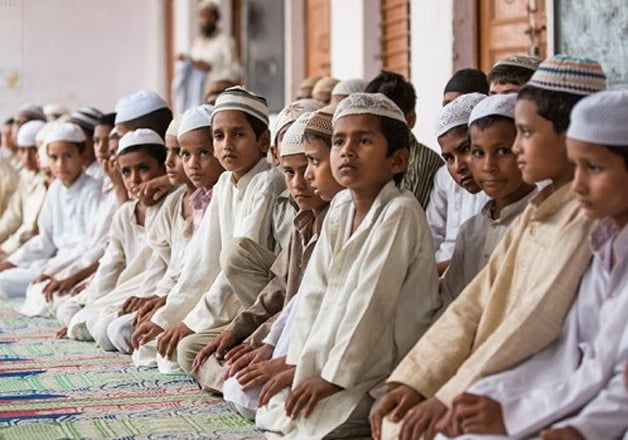Fake WhatsApp Message Make UP Madrassas Nervous; Refuse Vaccination for Children

New Delhi: At a time when WhatsApp is taking to prime time airwaves to curb misinformation on its platform, the Uttar Pradesh administration is grappling with a fresh incident of madrassas refusing entry to health officials to administer vaccine to students because of spurious messages forwarded through the massing app.
The incident has been reported from few districts in the state, but officials fear the fake message could spread to other states including Odisha, posing a bigger challenge.
The WhatsApp rumour claimed that the measles-rubella vaccines could expose children to deadly and contagious diseases, and could make them impotent.
As many as 70 madrasas in Meerut district alone have refused entry to health officials. What has added fuel to the fire is unsubstantiated rumours that children across the country are falling sick after being administered the vaccine.
“Some madrassa authorities have asked students to stay at home on the day of vaccination. We have now set up teams to conduct awareness drives and to inform people that the vaccine is safe,” Dr BS Sodi, chief medical officer (CMO) Saharanpur told reporters.
Madrassas in Bijnor and Moradabad are also opposing the vaccination, some report suggested.
Measles is a highly-contagious and according to a government report, 49,000 children were killed in India in 2015.
The Government has now reached out to senior clerics to quell rumours, but the spread of rumours through WhatsApp is something official said they have little control about.
The world’s largest messaging app, with 200 million Indian users, in the first week of this month launched its first ever television campaign, discouraging promotion and consumption of fake and spurious messages. The Facebook-owned company has produced three 60-second video ads focused on educating Indians about the dangers of fake news and spurious forwarded messages.
The ads are an outcome of the pressure from the Union Government to act against the spread of misinformation and devise mechanism to trace the origin of the fake forwarded messages.
WhatsApp is being blamed for many politically-linked incidents of violence including over 20 cases of mob lynching reported this year alone. Few months back, residents of a particular locality of Bengaluru reported receiving WhatsApp message about being aware of people from Bihar and Odisha involved in child trafficking.
The messaging app has decided that its ad campaign will not remain confined to Hindi and English but be aired in regional languages as well.
The company has also limited the number of chats to which one can forward a message to five (instead of the global standard of 20), and introduced a tag that indicates when a message is a forward.

Comments are closed.